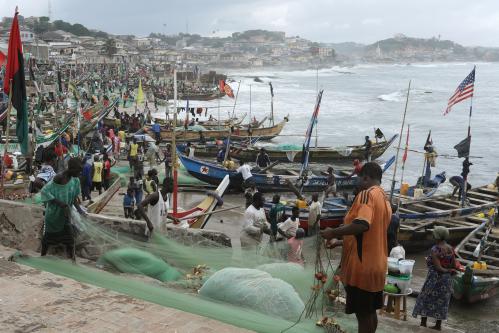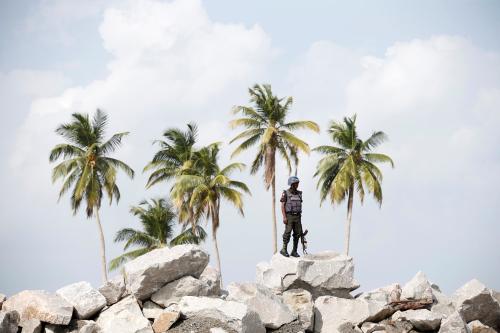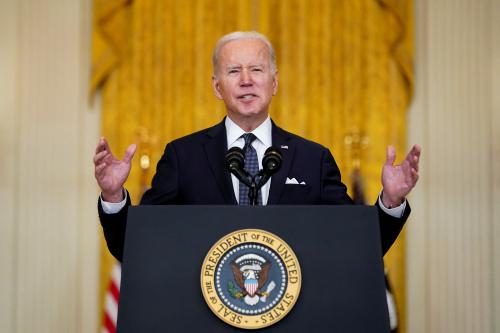Rising fiscal deficit in South Africa raises concerns for debt sustainability: On Wednesday, South Africa’s Treasury department released a new medium-term budget—an overview of government spending, revenues, and borrowing for the next three years—that showed slowing growth, an expanding budget deficit, and rising debt levels. The Treasury also cut its 2019 growth estimate to 0.5 percent from the previous 1.5 percent forecast. The government’s fiscal deficit—the gap between spending and revenues—is expected to hit 5.9 percent of GDP this fiscal year, up from the 4.5 percent forecasted in February and the highest since FY 2009/10. Large fiscal deficits in the next two years are expected to push government debt to 70 percent of GDP by FY 2022/23, up from 60 percent this year. Addressing parliament, Finance Minister Tito Mboweni emphasized the need for corrective action, noting, “The consequence of not acting now would be gravely negative for South Africa. Over time, the country could likely face mounting debt-service costs and higher interest rates and may enter a debt trap.”
In related news, Kenya revised its fiscal deficit target for the second time this year, raising it to 6.2 percent of GDP, higher than the original target of 5.6 percent of GDP. Lower-than-expected revenues contributed to the higher estimate. Kenya’s public debt has been rising in recent years, hitting 55 percent of GDP this year. Government officials have indicated that the country is hoping to reduce commercial borrowing in coming years to make sure its debt servicing costs are sustainable.
African Development Bank board approves capital increase
On Thursday, the African Development Bank’s (AfDB) board approved a 125 percent capital increase for the organization that will allow it to expand its lending operations. The bank’s capital base will increase from $93 billion to $208 billion. The increase comes after two years of negotiations among the bank’s shareholders, which include 54 African countries and 26 non-African countries. According to the AfDB president, the additional capital is expected to support increased lending for energy, climate, agriculture, and infrastructure projects.
Violent unrest in Ethiopia leads to deaths during protests
At least 78 people were killed and 409 arrested in Ethiopia after protests against the treatment of prominent political activist Jawar Mohammed during the week of October 21. The protests took place in capital of Addis Ababa and in the Oromia region after Jawar, an activist and media entrepreneur, accused government security forces of attempting to plan an attack against him. Prime Minister Abiy Ahmed, who was attending the Russia-Africa Summit when the protests broke out, has been criticized for his response to the unrest.
Abiy recently received the Nobel Peace Prize for his work to end the decades-long conflict between Ethiopia and Eritrea, and has also released thousands of political prisoners and invited exiled activists to return to the country since coming to power. Among these activists was Jawar, the founder of an independent media network, who played a key role in mobilizing protests from 2016 to 2018 that led former Prime Minister Hailemariam Desalegn to resign and Abiy to take office. Abiy’s efforts to reform and open Ethiopia’s political space, while praised by many, have also brought to the foreground disputes over power, resources, identity, and territory that have resulted in its recent political turmoil.







Commentary
Africa in the news: South Africa’s and Kenya’s rising fiscal deficits, AfDB’s capital increase, and Ethiopia in turmoil
November 2, 2019